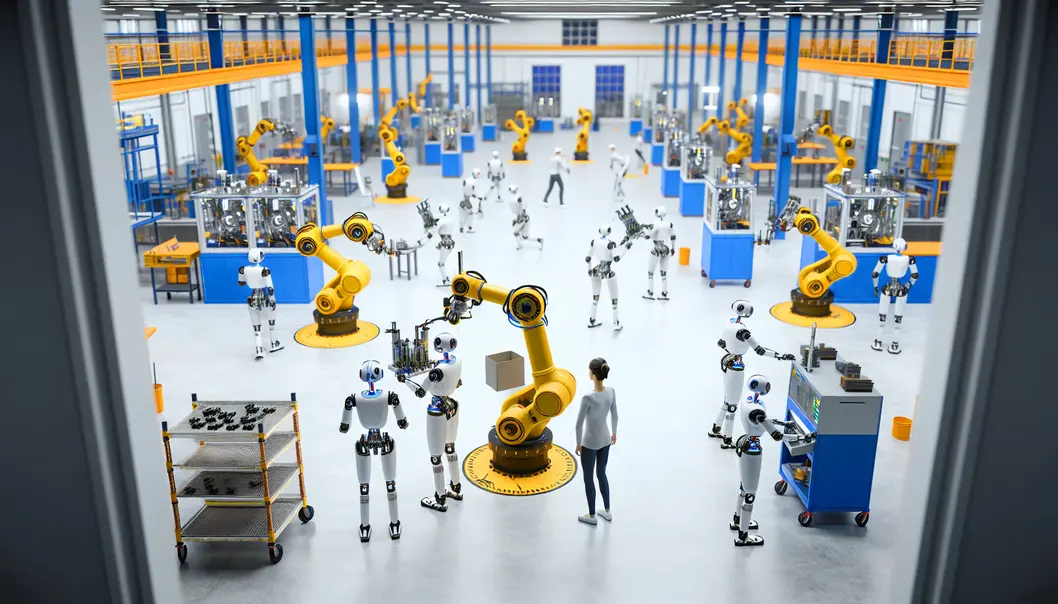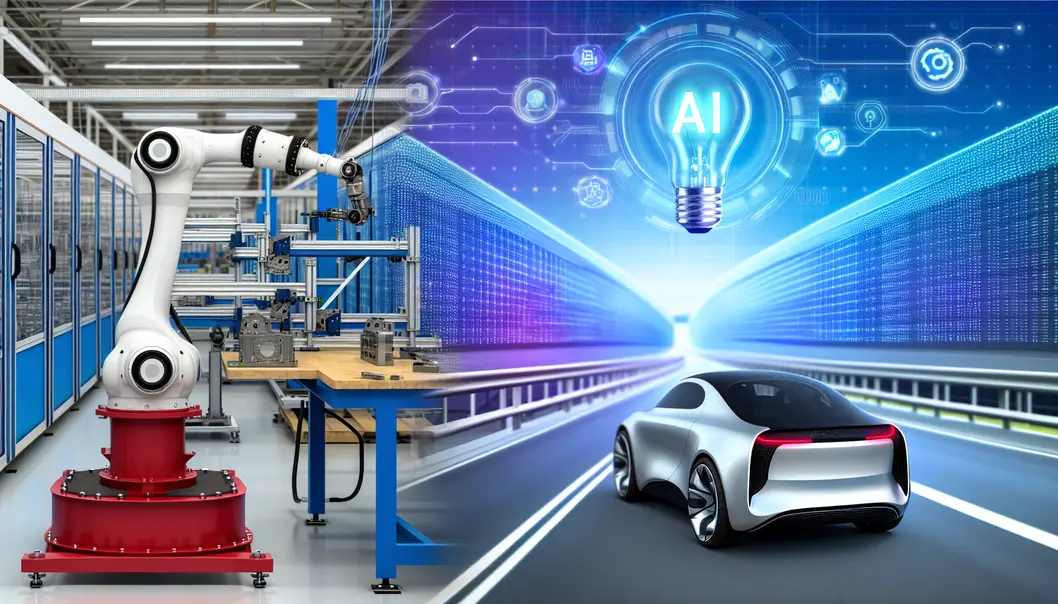AI agents are increasingly pivotal in modern startups, enabling autonomous decision-making and broadening possibilities across various industries. From optimizing workflows to providing real-time insights, these agents enhance efficiency and innovation. This article delves into how AI agents autonomously make decisions and their transformative impact across sectors like customer service, manufacturing, and healthcare, offering startup founders insights to harness these technologies for growth.
Empowering AI Agents Through Autonomy and Independent Decision-Making

Autonomous decision-making stands as a cornerstone of modern AI agents, elevating them from mere task executors to sophisticated partners capable of transforming entire industries. At the heart of these agents lies the capability to analyze surroundings, evaluate multiple options, and make spontaneous decisions without human oversight. This innovative aspect of AI is not just a frontier of technological advancement; it is reshaping how businesses operate and innovate.
Defining Autonomy in AI
AI agents endowed with autonomy exemplify a remarkable fusion of independence and intelligence. They leverage real-time data analysis coupled with advanced machine learning approaches, such as reinforcement learning and deep learning, to perform this autonomous decision-making. Autonomy allows AI agents to function with minimal human input, making choices based on comprehensive data processing and learning algorithms. Whether utilizing reinforcement mechanisms for improved predictions or employing probabilistic reasoning to handle uncertainties, these agents continuously refine their strategies, mastering their roles more effectively over time.
Varieties of AI Agents
AI agents vary significantly in terms of their capabilities and levels of autonomy. Simple reflex agents rely on pre-set rules, while their more advanced counterparts, like model-based and goal-based agents, use internal models and objectives to drive informed decision-making. Utility-based agents focus on optimal actions to maximize outcomes, whereas learning agents dynamically improve through experience. The most sophisticated of these are autonomous agents, exhibiting broad intelligence and the ability to make complex decisions across various scenarios with minimal guidance.
Deployment Across Sectors
The application of autonomous AI agents spans many industries. In customer service, these agents autonomously handle queries, manage refunds, and adjust inventory processes, enhancing client satisfaction and operational efficiency. Healthcare harnesses AI agents for tasks ranging from diagnostics to the personalization of treatment plans, streamlining administrative operations. Supply chain management benefits from these agents as they automate logistics, implementing real-time adjustments to inventory levels that ensure smooth, uninterrupted operations. Even in cybersecurity, AI agents proactively detect threats and modify security protocols to adapt to emerging risks, fortifying digital defenses against potential breaches.
However, the path to integrating autonomous AI agents is not without challenges. The reliability of these agents hinges on the quality and accuracy of the data they process. Poorly curated data can mislead decision-making processes, leading to suboptimal outcomes. Ethical considerations also loom large, with concerns about accountability and biases inherent in automated decisions demanding robust governance frameworks. Monitoring these systems, ensuring they operate ethically and align with broader societal goals, remains imperative.
Looking Forward
As AI technology continues its trajectory of rapid evolution, the degree of autonomous decision-making that AI agents exhibit will only increase, weaving them deeper into the fabric of organizational workflows. The next few years promise even more seamless integration, with AI agents becoming indispensable entities within business operations. Such innovations are brimming with potential not just for boosting productivity, but also for empowering human creativity, allowing workers to focus on tasks that demand uniquely human ingenuity.
For further information about similar advancements, explore more about AI innovations.
The Broad Impact of AI Agents Across Industries

AI agents are profoundly reshaping numerous industries by automating a spectrum of tasks, augmenting decision-making processes, and enhancing customer experiences. These sophisticated systems, equipped to analyze immense data sets and learn from interactions, execute tasks with remarkable precision, making them increasingly vital across various sectors.
In the realm of e-commerce, AI agents are revolutionizing business operations with personalized shopping experiences and improved operational efficiency. Through the analysis of customer behavior, these agents suggest relevant products, boosting both engagement and sales. They also manage inventory, process orders, and automate logistics, ensuring seamless shopping experiences. Furthermore, AI agents enhance security by spotting fraud through the analysis of transaction patterns, thereby safeguarding financial assets.
The financial sector benefits immensely from AI agents through enhanced security, optimized investments, and streamlined routine operations. Real-time transaction scanning aids in fraud detection, protecting financial institutions from unauthorized activities. AI-driven trading bots assess market trends, executing swift investment decisions to maximize returns while minimizing risks. Automated customer service through AI chatbots reduces wait times and elevates customer satisfaction by promptly addressing inquiries.
In manufacturing, AI agents drive efficiency, cost reduction, and maintain high production standards. Predictive maintenance emerges as a key application, where AI systems analyze machinery data to foresee potential failures, thus minimizing downtime. Quality control is enhanced through computer vision, enabling the inspection of products for defects and ensuring that only top-quality goods are shipped to consumers. Additionally, AI agents boost supply chain optimization by analyzing demand trends, optimizing inventory levels, and mitigating delivery delays.
Agriculture sees significant enhancements in productivity through precision farming, achieved by AI agents that optimize crop yields and minimize resource waste. Innovations such as John Deere’s AI-integrated equipment improve seed planting precision and soil condition monitoring, while FarmBot’s AI-powered robotic systems automate small-scale crop production, dramatically reducing water usage. AI systems like IBM Watson offer predictive analytics and weather forecasting, boosting productivity by up to 20%.
The healthcare industry is witnessing transformative changes, particularly in drug development, patient care, and operational efficiency. AI agents streamline the drug development process by automating and refining data analysis, potentially reducing project timelines significantly. These advances allow healthcare professionals to focus more on patient care, given that administrative efficiencies are managed by AI.
In global trade, AI agents deliver indispensable knowledge and analytics to SMEs, refining sourcing processes and logistics management. These agents provide real-time insights and facilitate the handling of complex trade environments, making them invaluable in today’s dynamic market.
The integration of AI agents into business models necessitates clear goal-setting, the mapping of customer journeys to identify pain points, and an exploration of AI solutions to address these challenges. Change management strategies should be developed to ensure smooth transitions, and the impact of AI innovations should be continually assessed to refine and enhance strategic outcomes. AI agents’ capabilities in automating tasks at scale, offering personalized experiences, enhancing decision-making, and ensuring scalability underscore their significance in transforming industries globally.
For further insights into the role of AI in various domains, such as in NLP applications, visit the blog.
Final thoughts
AI agents are redefining industry landscapes and offering unparalleled opportunities for startups. By automating tasks and enhancing strategic decisions, these agents not only increase efficiency but also foster innovation. Startup founders stand to gain significantly by integrating AI agent technologies into their operations, paving the way for future-ready business models and practices.
Ready to elevate your business with cutting-edge automation? Contact Minh Duc TV today and let our expert team guide you to streamlined success with n8n and AI-driven solutions!
Learn more: https://nmt.name.vn/demo
About us
Minh Duc TV is a forward-thinking consulting firm specializing in n8n workflow automation and AI-driven solutions. Our team of experts is dedicated to empowering businesses by streamlining processes, reducing operational inefficiencies, and accelerating digital transformation. By leveraging the flexibility of the open-source n8n platform alongside advanced AI technologies, we deliver tailored strategies that drive innovation and unlock new growth opportunities. Whether you’re looking to automate routine tasks or integrate complex systems, Minh Duc TV provides the expert guidance you need to stay ahead in today’s rapidly evolving digital landscape.


